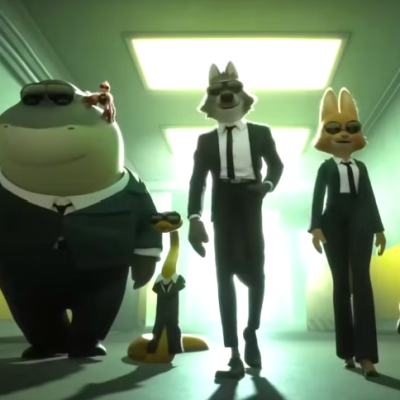The failing state of the gaming industry
There are a lot of things that come to mind when you think about modern gaming. At the forefront of thoughts are the popular games that have been released in the last few years like, “God of War Ragnarok.” “Elden Ring,” “Tears of the King,” “Hades,” and “Stray.” Gaming now more than ever is a wellspring of new games, coming from literally every corner of the internet and globe. Be it from multi-billion dollar companies to average college students, or even middle schoolers, the selection isn’t just what you see when you enter a GameStop. It is tens of thousands of games spanning thousands of pages. The accessibility to game creation is so wide right now that you, who are reading this article can easily learn how to create a game via the internet. The only thing that’s stopping a game you produced from stardom is whether your idea is fun and whether you can bring turn the idea into reality.
But modern gaming has a major problem with it, it’s not an accessibility issue, it’s not the fact that the prices of games have raised from $60 to $70, it is the quality of games themselves. Games have gotten stale, lack creativity, and are lazy.
Gaming has become quite boring, an example of this is recent “Call of Duty games,” most of them have been disappointments like “Infinite Warfare,” “Vanguard,” and “World War 2.” These have been the biggest disappointments primarily due to their lack of quality. The games went in directions that weren’t needed like the exo-suits in “Infinite Warfare” a complete departure and unnecessary addition to the franchise since “Advanced Warfare.” There was no direction in “Vanguard” as the game had too many aspects of several other games and tried to be too much all at once. “World War 2” is just not worth the price tag it goes for with a bad campaign, and rampant cheaters among other things that just don’t live up to standard. This isn’t only isolated to Activision (a renowned game producer) but to the wider gaming community. The gaming space is plagued with lazy releases of already established franchises like “Borderlands” or the aforementioned “Call of Duty” that don’t live up to the prior games due to the pressure of high expectations.
Another problem is the buggy releases. It is obvious when a game didn’t sit in the oven long enough and comes out a buggy mess and or is heavily plagued with lag. “Cyberpunk,” a game that was so hyped up it was bound to fail, with frame problems that most computers couldn’t even run it and game-breaking bugs that should’ve been seen and patched before release. The expectations were a live open world with people walking the streets and cars going by but it was an empty wasteland. Most recently “Jedi Survivors,” has framerate issues that made good computers run it at like 20 – 30 frames, meaning models and people popped in out of nowhere because they didn’t load in time. These are some of the examples of games that just didn’t meet the standards expected of them.
The gaming market is lazy as a result of the success of previous games. An example of this is the “Far Cry” franchise. They have had the same types of games throughout multiple years of releases since 2012, with the only memorial innovation being “Primal” because of its unique setting and gameplay. The only gripe is that they basically recycled maps, with it having so many similarities to “Far Cry 4.” But the innovation of “Primal” was short-lasting, “Far Cry 6” has basically the same structure as the other games. This behavior of recycling concepts due to the fear of taking risks that might not turn a profit is killing people’s love for games. I believe that studios should follow the fun and take more measurable risks.
That is not to say that modern gaming is entirely stale and soulless, games like “Hades,” “Stray,” “Binding of Isaac,” “Hollow Knight,” and “Celeste,” are popular indie games that were born out of people and developers that have passion for what they do: creating enjoyable games and “following the fun.” Following the fun is creating and making decisions for the game that would lead to the user having the most fun. “Hades,” is a game that had instantaneous success due to refined action-packed gameplay along with interesting and branching narratives, fun side quests, and stellar art design. Hades popped into stardom because of its efforts to follow the fun, seen through the use of its early access feature which allowed developers to get a sense of what needed to be added, adjusted, and worked on while continuously adding new features.
But even if there are these games were shot into stardom, games that we would consider bad, boring, and lazy are still popular, this could be due to the fact that there are no better games. Yes “Call of Duty” isn’t like what it used to be during the “Black Ops 2,” and “Modern Warfare 3,” era but what else can you play? There are no games that have risen to meet and compete with “Call of Duty.” The closest example we have is “Halo Infinite,” but that game lacked consistent and good updates. This kind of circumstance happens with sports games, where a line of games dominates its gaming sphere, and most others will just die off because they don’t have the sense of competition, or community that one line of game does. They aren’t played because it’s good, they are played because it is the only thing of a certain standard to play.
In the future, this will hopefully be remedied by the rising quality of lesser-known game studios because nothing will change if indie and lesser-known companies don’t rise into the spotlight. Eventually, this will make the lazy big companies pick up their trash and turn it into treasure in order to stay ahead. If the big companies can’t chase the fun, then they will be swept up in the fun.









